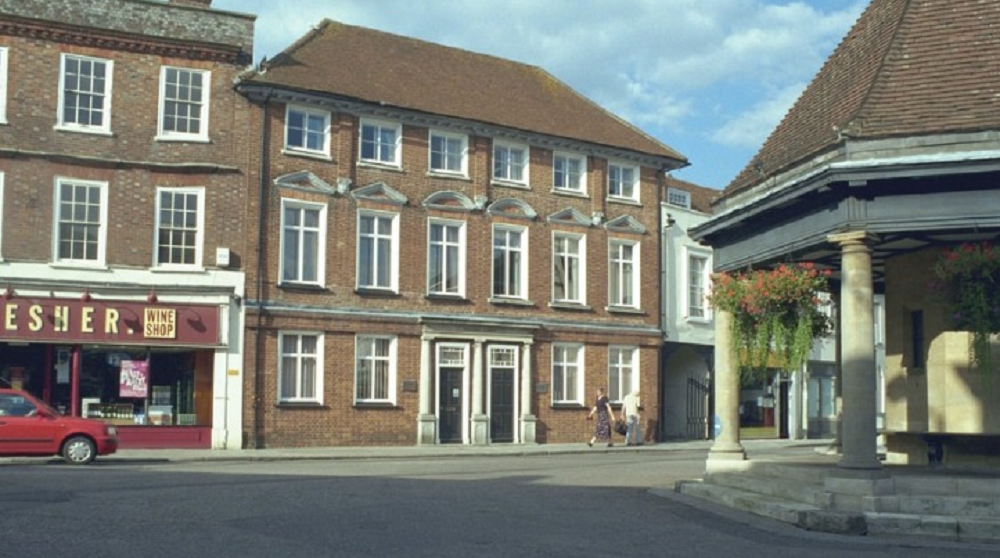How Newbury was central to welfare reform 230 years ago
Food prices have gone up. Farmers are up in arms about inheritance tax. There is a cost of living crisis.
No one thinks they get paid enough and employers are furious with the government about an increase in national insurance contributions.
About the only people possibly happy with how things are going in the corridors of power are those on the minimum wage – that goes up in April. Although arguably it is still pitifully low at £12.21 an hour for the over 20s.
It’s curious to imagine that such issues today hail back to a conversation between the equivalent of local council leaders 230 years ago.
On May 6, 1795, the Berkshire Court of Quarter Sessions held a special meeting at The Pelican Inn in Speenhamland, near Newbury.
The object of the meeting was to approve a minimum income for agricultural labourers, by establishing a living wage or a “right to live”.
The authorities at Speenhamland approved a means-tested sliding-scale of wage supplements in order to mitigate the worst effects of rural poverty.
The Speenhamland Law happened during a period of economic distress in England in the mid-1790s.
Food riots marked the spring of 1795.
The ruling class feared that working people might be tempted to emulate the French, and revolt. Acute social and economic distress spread throughout the rural south of England, placing strains on the poor law system.
The cost of living crisis today provides another curious link with Georgian Newbury, with food and energy prices being affected by the conflict in Ukraine, as in 1793 Britain became involved in the Napoleonic Wars.
This made the import of foodstuffs from Europe increasingly difficult and the price of bread increased rapidly. Concurrently, there were food shortages because of a series of poor harvests.
The justices sitting in The Pelican Inn agreed a scale of credits to top up wages during a time of high inflation. These top-up payments would be paid for out of the rates.
When a “gallon loaf” of bread cost one shilling every “poor and industrious person” would receive a relief allowance of three shillings weekly, based on his own or his family’s labour.
He would also receive one shilling, six pence for the support of his wife and other family members. If the cost of bread rose, he would receive proportionately more money. The system was financed by taxpayers.
The ‘law’ or system was an amendment to the Elizabethan Poor Law.
In a system that might seem familiar today, the parish was given the power to use the tax revenues to build and maintain almshouses, to help the aged, the sick, and handicapped, and other helpless people in their own homes, and to “purchase materials with which to put the able-bodied unemployed to work”.
Many of those functions are now paid for by council tax, and administered by the council.
The Elizabethan Poor Law held parents, if they had the means, responsible for the support of their children and grandchildren.
In turn, children were liable for the care of their “unemployable parents and grandparents”. Those children whose parents could not provide for them “were to be set to work or bound out as apprentices”.
Finally, ‘vagrants and able-bodied people’ refusing to work could be sent to a “house of correction”, a workhouse, or jail. Putting people into almshouses (or “poorhouses”), workhouses, or other institutions was considered “indoor relief”.
The Speenhamland system – basically an amendment to the Elizabethan Poor Law – was similar to many modern tax and welfare systems.
Payments were based on how many children a family had.
Families were paid extra to top up wages to a set level according to a table. This level varied according to the number of children and the price of bread – and so the system become known as the Berkshire Bread Tax.
This was linked to the price of bread, which acted as a wage stabiliser.
At the time, right wing commentators lamented its validation of the poor, believing that it would stifle innovation in agriculture, and also encourage the labouring classes to breed.
The left resented the fact that it provided a subsidy for rich farmers, who were free to profit from inflation in goods without passing on increases in wages.
The Speenhamland System appears to have reached its height during the Napoleonic Wars, when it was a means of preventing discontent among rural poor faced by soaring food prices, and to have died out in the post-war period, except in a few parishes.
As living costs continue to soar today, West Berkshire Council is continuing to assist the local community through its Household Support Fund, until spring 2025.
The funding aims to support households who would otherwise struggle to meet essential housing costs, including energy and water bills, food, and wider essentials.
Any West Berkshire resident aged 66 or over and who is on a low income can apply for new help.
Stepping back into the time machine to the late 1700s, the immediate impact of paying the poor rate fell on the landowners of the parish concerned.
They then sought other means of dealing with the poor, such as the workhouse funded through parish unions.
One of the effects of the Speenhamland System was that ratepayers often found themselves subsidising the owners of large estates who paid poor wages.
It was not unknown for landowners to demolish empty houses in order to reduce the population on their lands and also to prevent the return of those who had left.
At the same time, they would employ labourers from neighbouring parishes: these people could be laid off without warning but would not increase the rates in the parish where they worked.
And now, 230 years later, the same argument is levelled at migrant workers.
While those affected today by adult social care issues wait on a government report on how to pay for it, councils are still paying out around 75 per cent of their revenues to cover the costs of it.
Wes Streeting has defended the timescale for reforming adult social care in England, with proposals on its long-term funding unlikely to be delivered before 2028.
The health and social care secretary is promising “to finally grasp the nettle on social care reform”, but said the process “would take time”.
Ironic really, considering it was all started over 200 years ago. At least they had penny gin back then.




